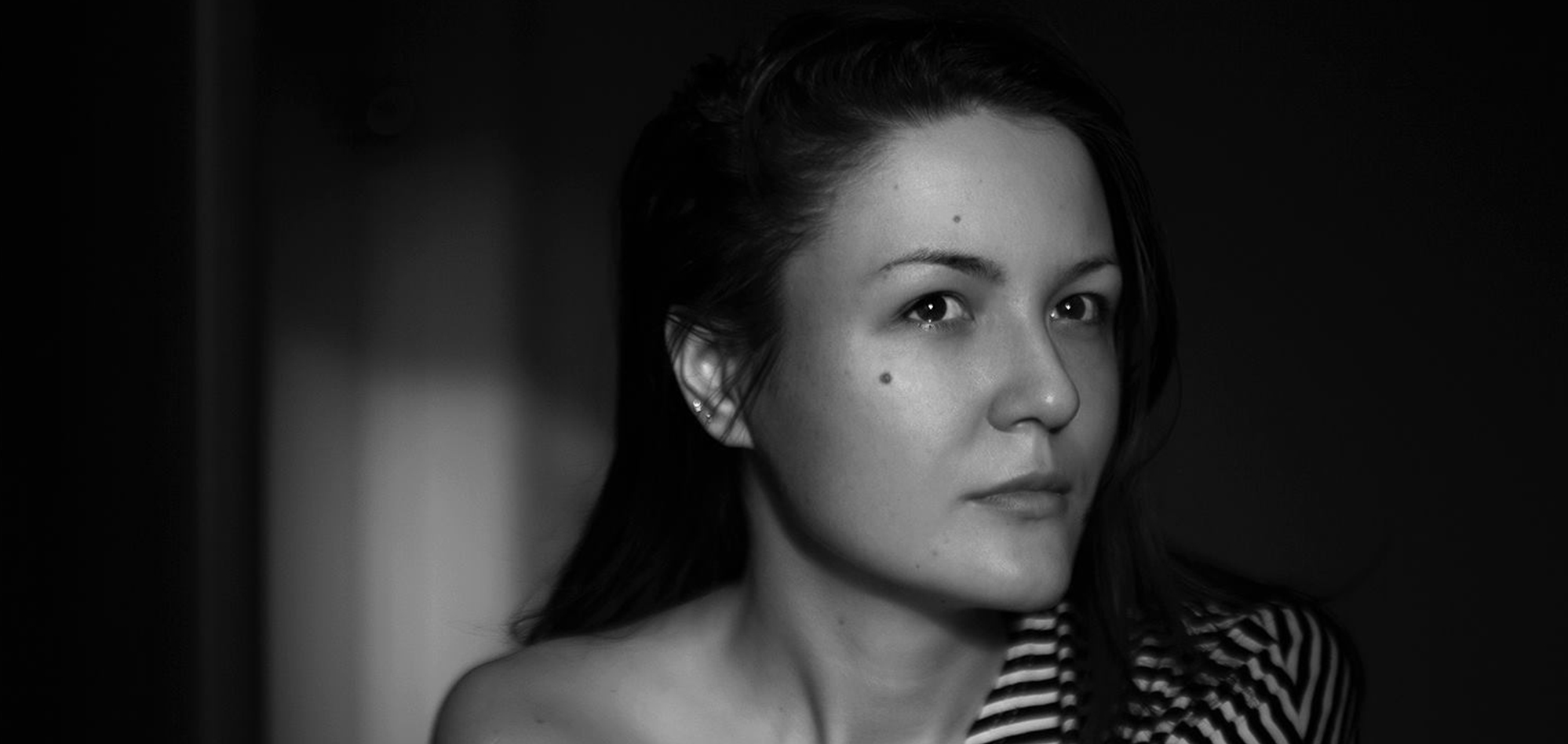Sophy Romvari is a filmmaker born in Victoria, B.C. and based in Toronto. Her critically acclaimed short films have travelled the international festival circuit and have earned her a reputation as a leading young talent. Her 2017 hybrid documentary “Pumpkin Movie” premiered at True/False to considerable praise, as well as at Hot Docs and Sheffield Doc Fest. It has been praised by critics as “a lovely, subtle work of feminist protest.” In 2018, her short “Norman Norman” had its world premiere at the Toronto International Film Festival. It was also the centerpiece of “Super Succinct and Radically Direct,” a retrospective of Sophy’s work at the Museum of the Moving Image in New York City. She has directed documentary films for such acclaimed outlets such as CBC Short Docs (“In Dog Years,” 2019) and Kino Lorber (“Remembrance of József Romvári,” 2020). She completed her Master’s in Fine Arts at York University, where she shot her thesis film, “Still Processing.”
Tara Karajica talks to Sophy Romvari about short films, women in film and “Still Processing,” that premiered at this year’s Toronto International Film Festival.
How did you get into filmmaking and what inspires you to make films?
Sophy Romvari: I had always been quite interested in various art forms, but it wasn’t until I was about twenty years old that I discovered the possibility of merging so many different mediums into one through the practice of filmmaking. I got a taste for it, and I haven’t let up since. So far, I’ve mostly made films based on personal experiences, sometimes through fiction but mostly non-fiction or hybrid. I feel a need or even a compulsion to depict certain experiences that are very specific to me, but which through the act of filmmaking become universal. I strive to make work that is honest and accessible. Most of my work revolves around themes of mortality, grief, isolation and processing trauma.
Can you talk about your short film Still Processing?
S.R.: Still Processing is the project that most of my previous work had been preparing me for. With this film, I really wanted to explore the possibilities of Cinema as therapy, particularly for processing past traumas. I believe there is wonderful potential in the medium for healing. I had been thinking about this film for a couple of years before I even broached the subject to my family or anyone else. I knew that the photographs that are essentially the main character of the film existed, but I was afraid to see them for the first time. So, in the film, you see exactly that.
How do you see the short form today?
S.R.: I see the short form as a wonderful and accessible tool for representing people’s experiences that are different from our own. We talk a lot about representation, on and behind the camera, and I believe the short form can play a major role in creating opportunities for that to happen. It’s generally affordable, you can focus on specific experiences or themes that might be burdened by the runtime of a feature, and they are easy to distribute online. Historically speaking, some of the most interesting and daring work has been discovered within the short form, and by people who exist within the much less represented demographics.
What is your opinion on the situation of women in film today?
S.R.: I think there has been a lot of positive movement toward the inclusion of women in the film industry. It’s great to see more women being given the opportunity to direct, but I still believe there is a lot of work to be done in terms of gaining equal respect between male/female/non-binary filmmakers. I also see a lot of essentializing of women in film, and that there is an expectation for them to tell ‘women’s” stories or make films about topics that are inherently feminine, or even simply a pressure to only depict “strong” women. This is even more burdensome for filmmakers who are of a visible minority. I believe that is a huge step that we have yet to accept as a society.
Who is your favorite female filmmaker and what is your favorite film by a female filmmaker?
S.R.: A few of my favorite female filmmakers include Valérie Massadian, Kelly Reichardt, Kirsten Johnson and Claire Simon. Every film I’ve seen by all four of these women has blown me away and I see them all as huge inspirations on my own work. If I had to pick one favorite film from the above, it would be Premières Solitudes by Claire Simon.
What are your next projects?
S.R.: Currently, I’m in development for two short films, both of which I was brought on as a director rather than projects that are my own. I’m excited to be branching out into new territory with both of them. One is a fiction, the other a documentary. In regards to my own work, I just received a grant to write and develop my first feature length screenplay, so that will be my main focus. I feel very lucky to have something to pour myself into while I stay at home in the coming winter months.
Photo credits: Sophy Romvari.
This interview was conducted during the 2020 (virtual) Toronto International Film Festival.










